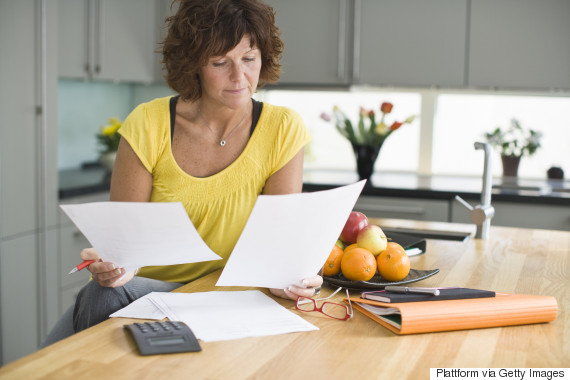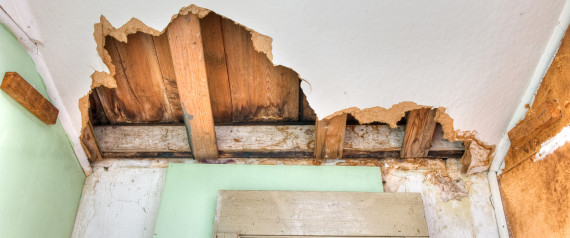The average person spends longer choosing their annual holiday than they do picking their new home. They typically have just one viewing - rarely lasting more than half an hour - and turn the biggest financial choice of their life into a snap decision.
It’s easy to understand why you might want to move quickly when you find a home you really like, but if you are going to avoid making a mistake, there are 15 questions that you must take the time to ask.
The money questions:
1. Can you afford it?
It’s easy to get carried away when your estate agent produces details for the home of your dreams - just slightly out of your price bracket. If you take the bait, then you’re going to hit a brick wall further down the line - either when you apply for a mortgage or when you realise that the monthly repayments are beyond your means. So you need to set a sensible budget and stick to it.
There will be two things driving your budget. The first is the size of the deposit you have. You can get a mortgage with as little as 5% deposit, but the more deposit you have, the more mortgage options will be available. If you work towards an ideal deposit of at least 10%, the savings you have will put a cap on the total you can borrow.
2. Can you afford the monthly payments?
You shouldn’t necessarily borrow the absolute maximum that you can. The other factor determining your budget is how much you can afford to repay each month. To establish this, you’ll need to draw up a list of all the money you have coming in and going out each month, and use that to work out what you have left to pay the mortgage with. From there you can work out the size of mortgage you can afford the repayments on.
The right level of borrowing will give you a decent deposit, and manageable monthly repayments. Anything that starts to feel uncomfortable is likely to be beyond your reach.
3. Have you included the additional buying costs?
When you’re doing the maths, don’t forget the cost of buying the home itself. You will have mortgage fees, solicitor’s fees, the cost of the survey and searches, stamp duty and removal costs. The total costs can easily rise to thousands of pounds, so it’s worth putting money aside for this separately.
4. Do you have a plan for when rates increase?
When rates rise, you will still need to be able to afford the repayments on your mortgage. It’s worth calculating how the repayments would rise if interest rates increased - not just slightly but significantly - to 6% or 7%. Then revisit your budget and work out what you would be able to cut back on in order to still be able to afford repayments.
It may seem a bit drastic, but you will have to go through this process to prove to your lender that you can afford the mortgage. If there’s no way to make ends meet when rates rise, you will have to scale back your borrowing ambitions.
5. Are you factoring in any life changes?
You need to think about affordability over the whole period you intend to own the house for. You don’t need to plan for every eventuality, but if you know life is going to change in the near future, you need to think how it will affect what you can afford. If, for example, you plan to have a child in the next year or two, you will need to think about affordability during any maternity leave, or any time that you or your partner plans to take off.
The property questions:
6. Does it involve the right compromises?
Every home will be something of a compromise, so you need to ask yourself if you’re making the right ones. If, for example, you have taken on a longer commute in return for a larger property, have you considered the difference it will make to your lifestyle? If you have opted for a flat instead of a house in order to get the right location, will you be able to cope with the proximity of your neighbours? Think very carefully about the things are most important to you, so you compromise on those things that matter least.
7. Is this home going to work for the long-term?
The sheer cost involved in buying a property should make most people think long and hard before doing it more than every five years. It means you need to have a reasonably long timeframe in mind when you start looking for the property.
You need to ask whether your family is likely to grow over that time, whether your children are likely to need good local schools, whether you will need to be able to put-up elderly relatives. It’s not worth finding the perfect home for today if you end up having to sell up in a couple of years’ time.
8. How much work does it require?
If you are prepared to take on some work, you can usually get far more property for your money, so it’s worth considering carefully whether you are prepared to take on more of a project.
Do you have the skills to complete a project yourself? Are you prepared to learn them? Do you have the time available to do it yourself? Do you have the money you need to pay someone else to take it on? There are no right or wrong answers: they will just help you identify the right level of work for you.
9. Can you add value?
A major project will almost always add value, but even if the property is ready to move into, consider whether over the long term you would be able to increase what it’s worth. If it has a loft - and others on the road have been converted - then a loft conversion could add value. Similarly if other nearby properties have extended, there’s potential there.
10. Are you pushing yourself too far for a dream house?
Even when you have gone through all these steps, you need to take a step back and consider whether you are happy with what you are about to spend. We come to conclusions about the kind of house we need based on lots of sensible, logical reasons - and lots of completely illogical emotional ones. You may have always wanted a house of a particular size or style, or a particular kind of garden. However, you need to think carefully whether this is something you really need right now, or whether you can get something more suited to your needs for less.
The wider issues:
11. What do you know about the area?
Before you buy, you need to get to know the area well. You should time your commute, investigate the schools carefully, and visit the property at a number of times of day. During rush hour and later on a Saturday evening are both key times: if it’s on a rat-run or the main route home from the pub, you need to know about it.
12. Have you checked the survey?
The best peace of mind comes with a full survey. You and your solicitor should check through it carefully for any warning signs. All sorts of things can come up in the survey, from asbestos tiles, to significant signs of recent movement. If you ignore these now, you will pay for them later.
13. What do the searches show?
There are a number of possible searches, but the priority is usually the Local Authority search. This will highlight issues that may not be immediately obvious when you look at the house - such as whether future planning permission, roads, or developments could cause problems for your home. Make sure you discuss the results with your lawyer, so you fully understand all the implications of what the searches throw up.
14. Do the preliminary enquiries set any alarm bells ringing?
Early in the buying process, the sellers will produce a document outlining certain basic things about their time in the property. This includes details of any arguments with neighbours, planning issues or boundary disputes.
You’ll need to study this carefully, because the last thing you want is to move next door to the neighbours from hell - or find yourself stuck in an ongoing dispute over a strip of land or the state of your rosebushes. These things may seem trivial to you, but they are the kinds of things people end up spending thousands of pounds fighting over, so you need to know about it up-front.
15. Can you have another look around - or two?
The first viewing is often about the feel of the place, and whether you can imagine yourself living in the property for the next few years. The second and subsequent viewings are where you look very closely at the property, looking for damp, stains on ceilings, condensation on windows, checking that lights work, that the plumbing works and that the boiler fires. You should also have a good look at the outside for mould, cracks, rotten woodwork, and leaky guttering.
If the owner is doing the viewings, then it pays to grill them about the property, the area, and the neighbours. You need to balance this with keeping things cordial with the current owners, but they will expecting you to be thorough if you are spending a small fortune on the house, so don’t be shy.


